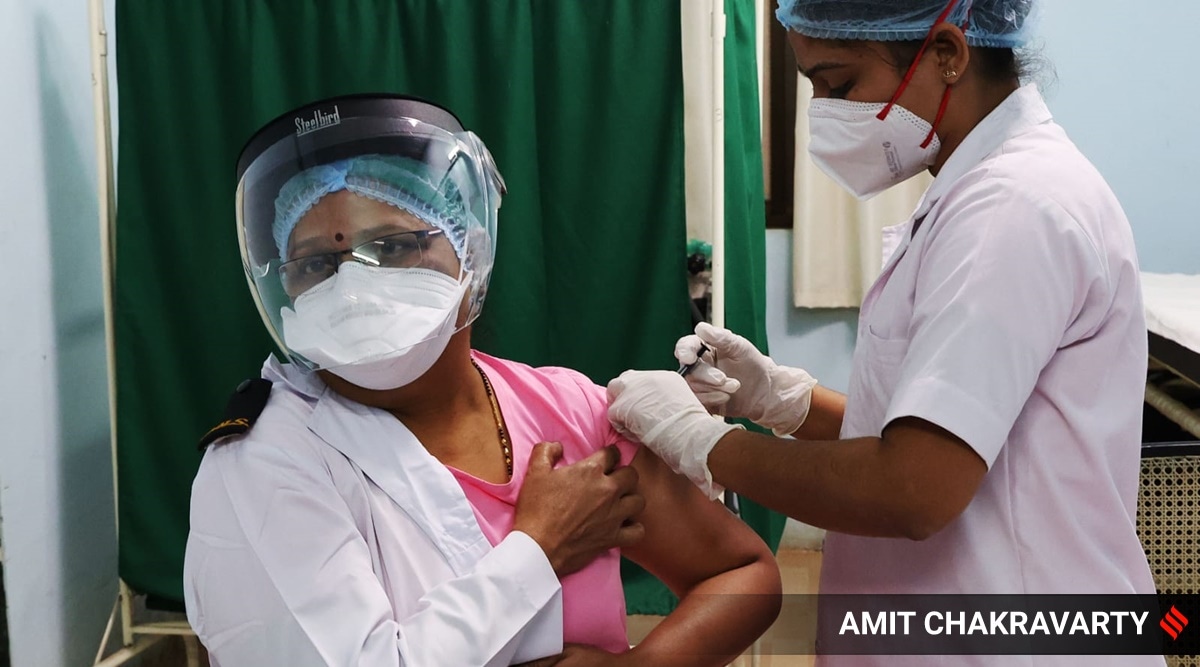
Amid rising Covid-19 cases, the World Health Organization (WHO) has called for development of “new Covid-19 vaccines that are genetically and antigenically close to the circulating SARS-CoV-2 variant(s)”. It has now emphasised that repeating booster doses of the original Covid vaccines is not a viable strategy against emerging variants.
“A vaccination strategy based on repeated booster doses of the original vaccine composition is unlikely to be appropriate or sustainable,” the WHO Technical Advisory Group on Covid-19 Vaccine Composition (TAG-Co-VAC) said in a statement.
Since its emergence, the SARS-CoV-2 virus has continued to evolve, and WHO has designated five variants as SARS-CoV-2 Variants of Concern (VOC) to date – namely Alpha, Beta, Gamma, Delta and Omicron – due to their impact on transmission, disease severity, or capacity for immune escape. As Omicron variant is spreading rapidly across the world, the evolution of SARS-CoV-2 is expected to continue and Omicron is unlikely to be the last VOC, WHO stated.
“As a result, it is prudent that new vaccines be developed in addition to providing people with booster doses. Currently, the emphasis should be on immunising the population as early as possible, and providing booster doses to frontline workers, and the elderly,” said Dr Col Vijay Dutta, Senior Consultant – Internal Medicine, Indian Spinal Injuries Centre.
 Beneficiaries take the booster vaccine dose at the Rajawadi Hospital in Mumbai’s Ghatkopar on Monday. (Express Photo by Amit Chakravarty)
Beneficiaries take the booster vaccine dose at the Rajawadi Hospital in Mumbai’s Ghatkopar on Monday. (Express Photo by Amit Chakravarty)
WHO asserted that for the Omicron variant, “the mutational profile and preliminary data indicate that vaccine effectiveness will be reduced against symptomatic disease caused by the Omicron variant”. “But protection against severe disease is more likely to be preserved. However, more data on vaccine effectiveness, particularly against hospitalisation, severe disease, and death are needed, including for each vaccine platform and for various vaccine dosing and product regimens,” it stated.
In its recommendations, WHO said, some of the options to consider are
*A monovalent vaccine that elicits an immune response against the predominant circulating variant(s), although this option faces the challenge of the rapid emergence of SARS-CoV-2 variants and the time needed to develop a modified or new vaccine;
*A multivalent vaccine containing antigens from different SARS-CoV-2 VOCs;
*A pan SARS-CoV-2 vaccine: a more sustainable long-term option that would effectively be variant-proof.
However, Dr Shuchin Bajaj, founder director, Ujala Cygnus Group of Hospitals, said that a “long-term” solution is far in sight. “It is too early to label Covid-19 as the new common flu, and we still don’t know its long-term effects. Even with Omicron, we are seeing that the virus can stay in the body for longer. The previous variants have been detected in the body for as long as six months and in organs other than the lung, such as the heart and the brain. So, we will need specific vaccines for emerging variants as well,” he said.
“Until such vaccines are available, and SARS-CoV-2 virus evolves, the composition of current Covid-19 vaccines may need to be updated, to ensure that (they) continue to provide WHO-recommended levels of protection against infection and disease by VOCs (variants of concern), including Omicron and future variants,” the statement read.
According to Dr Bajaj, the mRNA vaccines are easily re-modifiable, and Pfizer is already bringing out vaccines specific to the Omicron variant. “We may need more vaccines depending on the severity and the transmissibility of the new variants that are expected to keep coming until each person is vaccinated,” he added.
Agreed Raghavendra Goud Vaggu, general manager, Cytiva South Asia, and mentioned that there has to be “renewed impetus to the vaccination drive, including booster doses where applicable, as vaccines increase the amount of antibodies in our blood and shield us as best as they can”. “That’s better than having no vaccines and hence no protection from the virus. The current vaccine drives should be carried on, while research on more suitable vaccine cocktails continue in the laboratories. It’ll be months until newer vaccines are found, tested and approved; and we have to keep ourselves safe until then,” he said.
📣 For more lifestyle news, follow us on Instagram | Twitter | Facebook and don’t miss out on the latest updates!